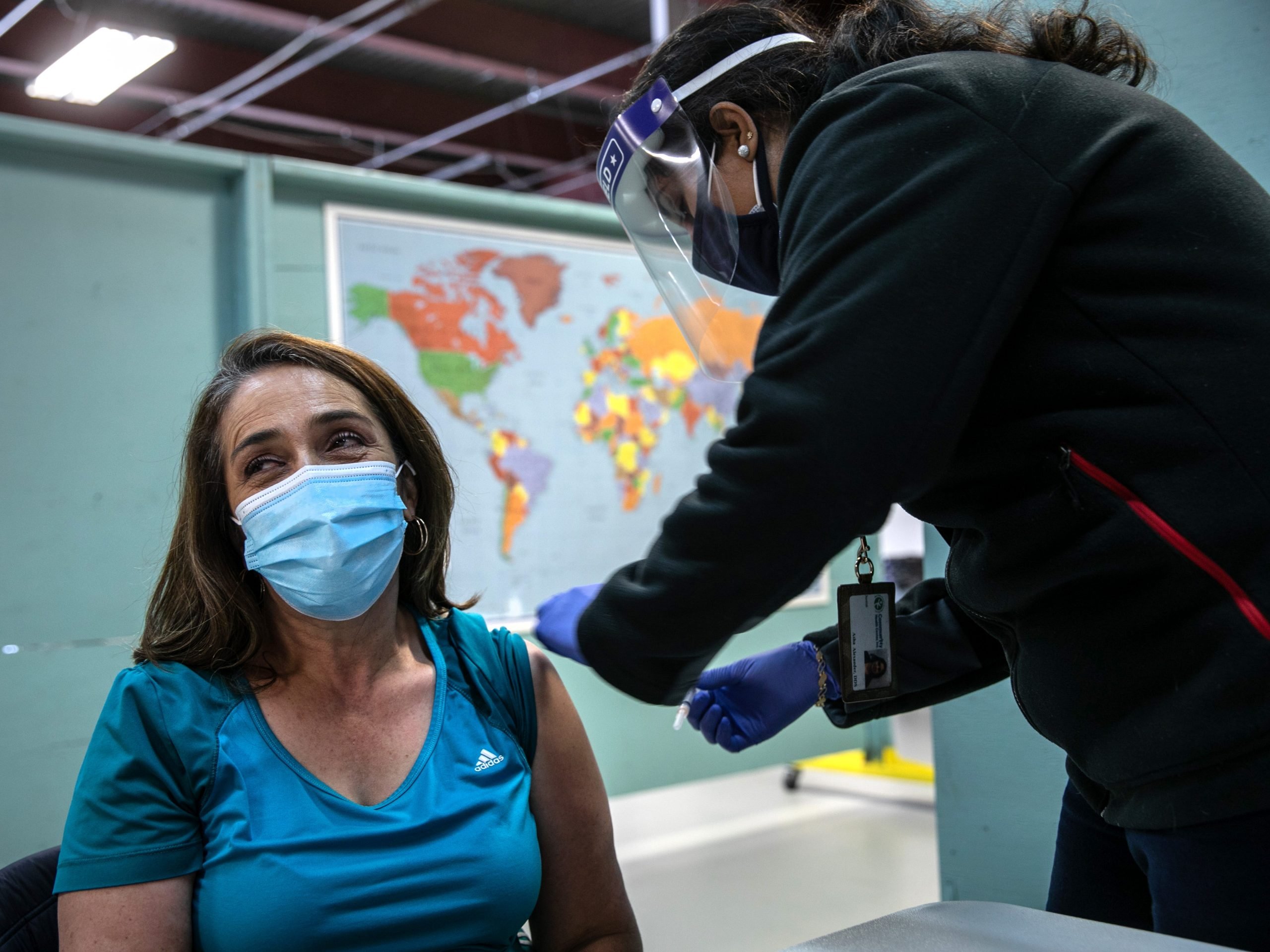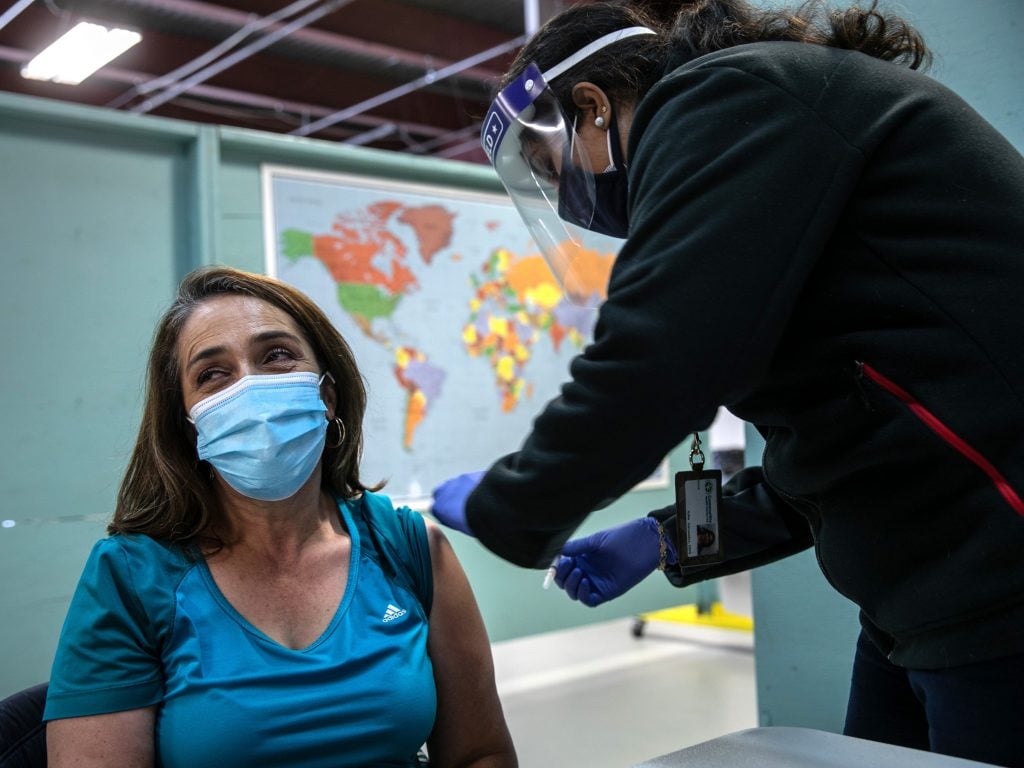
John Moore/Getty Images
- Twenty groups of scientists are trying to create a single vaccine that fights multiple coronaviruses.
- Coronavirus is the virus family that SARS-CoV-2 – which caused the COVID-19 pandemic – belongs to.
- An expert said scientists could make the vaccine within five years, preventing future pandemics.
- See more stories on Insider's business page.
Scientists could soon create a vaccine that fights most coronaviruses, potentially preventing future pandemics, a foundation that funds vaccine development has said.
More than 20 research groups are trying to develop "broadly-protective" vaccines that can work against multiple coronaviruses. This is the family of viruses that SARS-CoV-2, the virus that caused the COVID-19 pandemic, belongs to.
If these researchers are successful then the next time a coronavirus crosses from animals to humans – which is seen as the most likely cause of future coronavirus pandemics – we would immediately deploy vaccines that work against it.
In March, the Coalition for Epidemic Preparedness Innovations (CEPI) announced up to $200 million for broadly-protective vaccines. CEPI was co-founded in 2017 by the Bill and Melinda Gates Foundation, the Wellcome Trust, and several countries to fund vaccine research for emerging diseases, including Disease X, an unspecified organism that could cause future epidemics.
Nick Jackson, head of programmes and innovative technology at CEPI, told Insider he was optimistic that scientists could make a fully-tested vaccine that works against most coronaviruses in three to five years.
Broadly protective vaccines would "cover the majority of known coronavirus threats" and "if really successful" would also protect against unknown viruses that are yet to emerge, he said.
Jackson said CEPI wanted to help create a vaccine for each theoretical future threat, creating "libraries" of vaccines parked around the world at strategic geographical locations. "So if Disease X happens to emerge in Sub-Saharan Africa, we have a solution in our library that can be used right away," Jackson said.
Jackson cautioned that a "universal" coronavirus vaccine for all coronaviruses was a "tall order," and potentially "unfeasible," because the coronavirus family was so large. In the past 10 years, the National Institute of Allergy and Infectious Disease has identified hundreds of new coronaviruses, he said.
Kirsty Le Doare, professor of Vaccinology and Immunology at Imperial College London, told Insider that it would take five to ten years of continued investment to develop broadly protective-coronavirus vaccines. "Scientifically there's always been the opportunity, but there's been no investment," she said.
CEPI has already invested $33 million in US-based biotech VBI Vaccines and $170 million in Korea's SKI bioscience to develop "variant-proof" vaccines that protect against multiple COVID-19 variants in a single shot.

